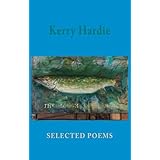
I struggled with this book, and didn't even finish it, mostly because I was reading it in bed last thing at night, and I could never find the place I'd stopped last time. It wasn't that the writing was bad - on the contrary, it was often stratlingly beautiful in a by Ted Hughes out of Dylan Thomas kind of way, it's just that it was so blooming repetitious. The peregrine is nothing more than a sleek elegant (powerful) symbol of violence, fear and death.Once with the:
Something was running towards the safety of the ditch at the side. The hawk dropped lightly upon it. Four wings fluttered together, then two were suddenly still. The hawk flew heavily to the centre of the field, dangling a dead moorhen from his foot.It has wandered too far from cover, as moorhens so often do in their search for food, and it had forgotten the enemy that does not move. The bird out of place is always the first to die. Terror seeks out the odd, and the sick, and the lost.
makes the point. A hundred and twenty two pages is, literally, overkill.
To be fair, the book was written during the Cold War, in the shadow of the Atom Bomb and the Nuremberg Trials, and focusses most on the years immediately following the Cuba crisis. The whole of Western culture in that period seemed to be about the stuctures of power, violence in society and death. And I'm not above using hawk imagery about nuclear weapons myself. But I think that if we are to avoid anthropomorphising our picture of the natural world, it is as important to avoid brutalisation as it is to avoid sentimentality. Your ass is lunch, as Gary Snyder points out - it's a fact of life, human, as well as animal, and sado-masochistic wallowing is as unhelpful as denial.
Two things did stand out for me, however. One was the depiction of the cold winter of 1962-3. I was eight then, and remember it well. Liverpool doesn't often get snow, being coastal, but that winter snow fell on Christmas Day and was still lying in April. The school playground was glassy and treacherous with thick ice, and that was the only winter we ever slept under old overcoats like in the song - because all the blankets we had just weren't enough. We didn't talk about global warming that year - the big fear was the return of the Ice Age. J A Baker describes a snowy desolation of a landscape without birds, and their return with the melting of the ice and the new leaves feels like a victory
The other thing was the casual mention of birds in large flocks - hundreds of lapwings or starlings, redwings and fieldfares in scores and flocks, mass movements of birds coming and going. We were worrying even then about what was happening to our environment, but Baker's countryside seems so rich and fertile and so well populated by everything from sparrows to nightingales. Since then peregrines have thrived, but I haven't seen more that twenty lapwings in one place for years, and the winter migrants come singly, not in flocks. We are used to worrying about the loss of species, but the overwhelming impression I get from reading books from previous years (and it's only fifty years ago) is that population densities have crashed even in species we regard as common, and safe, even in areas where we are aware and trying to protect biodiversity.
It's probably fair to see Baker's book as a product of its period, and it has certainly inspired many fine naturalists and nature writers. I'd like to go further, however. The disciplines of both geo-poetics and permaculture invite us to go beyond projecting our ideals and failings onto nature, simply observing what is happening around us, spotting the energy blocks and opportunities to develop from within the natural world not from the solipsistic human bubble of aspirations and remorse we seem to favour.










